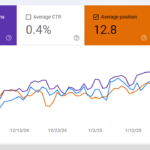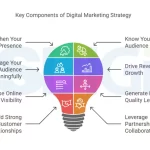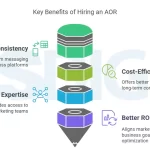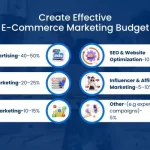 Creating a website is a difficult task and it requires expertise. As more businesses look to become digital, the demand for web developers remains high. No doubt there is a large pool of service providers, but it could be really challenging to find the best one.
Creating a website is a difficult task and it requires expertise. As more businesses look to become digital, the demand for web developers remains high. No doubt there is a large pool of service providers, but it could be really challenging to find the best one.
Are you looking for the best web development company in Bangalore? This guide will help you in making. By the end of this guide, you’ll learn how to select the best alternative in just a few steps. If you’re ready to achieve your online business goals with a cutting-edge website, keep reading.
Importance of Selecting the Right Web Development Company
A study by Forrester Research shows that poorly designed websites discourage 50% of potential repeat visitors from making purchases. Over 80% of companies already work with or are open to working with service providers. Therefore, choosing a reliable website development company in India is essential for designing, developing, and maintaining your website.
A well-designed and technically sound website is crucial for online business success. It builds trust and enhances branding.
While a poorly made website can hurt your business, a well-crafted, user-friendly one can propel it forward. To achieve this, you need professional developers. Unfortunately, many businesses make poor choices by quickly picking the cheapest option, leading to wasted money and missed opportunities.
Step 1: Defining Your Needs
When searching for a web development company, start by defining your needs. Ask yourself: What is the website’s objective? What message or goal does your company want to convey? What is the ideal outcome? What budget is available? The first step is crucial. Without clear answers, you risk wasting time and money. Define your goals clearly so the development company can help you hit the target.
If you need a new website or want to refresh an old one, web development is the way to go. Consider both the appearance and usability of the site. Each aspect has its own set of considerations. Before starting your project, choose an experienced web development company to help establish a strategy that aligns with your goals.
Web development can be confusing, with a lot of jargon thrown around. It’s easy to get misled. To choose the right web development company, first, understand what web development really is.
Step 2: Understanding Your Business Goals
Once you’ve answered the key questions, you’ll have a clear idea of who your users are and what they need. Next, add practical experience to this understanding. Browse similar websites, noting what you like and dislike. Good web development shares common traits, but it’s important to distinguish between simple and complex sites. Ensure the development company can create what you envision. Your site’s main goal is to meet user needs. If users don’t find what they need, they’ll leave, so make sure you can meet their expectations.
Every project begins with understanding the client’s business goals. Ask questions like: Who is the target audience? What actions should users be able to perform on your website? What are your goals, and how will the website support them? Your website reflects your business, so the clearer your understanding, the easier it will be to choose the right web development partner. If you struggle to answer these questions, consult an expert to ensure your concept will succeed.
Step 3: Researching Potential Companies
Start by checking out potential companies’ projects on live websites. Pay close attention to the quality of the developers’ work. Examine the CSS and HTML pages on the developer’s site and compare them with other projects they’ve done. This will give you an idea of their capabilities. Reach out to the developer with specific questions about their work.
This is the creative part. Unlike the information-gathering stage, here you’re trying to see how these companies solve development problems. You want to understand what makes them tick and gauge their experience. Meet or contact the developers
whose work stands out.
Step 4: Evaluating Portfolio and Case Studies
A developer’s portfolio offers a comprehensive profile. Evaluate their website design, navigation, and overall uniqueness. But don’t be swayed by flashy patterns and videos. If possible, explore the web pages of their clients to assess reliability and usability.
This is the best way to judge a web development company’s capability. Look for projects similar to yours. To evaluate a developer more effectively, ask for samples of their work. A live project demonstrates expertise better than any marketing material. If evaluating a recent project, consider contacting the client to ask about their satisfaction with the process. Design firms, advertising agencies, and consultants are also valuable sources for evaluation.
Step 5: Assessing Expertise and Technologies
To determine if a development team can handle your project, compare their work with other projects. Request references and scrutinize their work. Ensure optimization and easy maintenance. Test the site under stress to see how it performs. Quality assurance is critical, as is a solid support plan. Ask if the programming accommodates localization, which indicates the company’s level of international service.
The development company’s technicians and management staff must cover a broad range of expertise to ensure your project is developed successfully. Distance isn’t a barrier; what matters is that the company understands every detail of your project. If your project is international, choose a company that best suits your needs in terms of price, language, and business style.
The expertise and technologies used by a development company can significantly impact your project’s success. Look for evidence of solid programming and design skills. Leadership and management also play a key role in guiding the team to success.
Step 6: Checking Technical Skills and Certifications
Essential skills like JavaScript, HTML, CSS, and Flash are fundamental. The team should also be experienced in SEO, UX, and collaboration with designers, writers, and marketers. Additional technical qualifications, such as in flash animation or social media marketing, are a bonus. Don’t hesitate to ask about their experience. Technical capability is the foundation of a successful digital product.
The most important factor to consider is the team’s technical skills, as these will determine the utility of your product. While portfolios are useful, don’t judge a company solely on its size. Smaller companies might be better suited for your specific needs. Evaluate their qualifications carefully.
Step 7: Communication and Support
After your initial contact, it’s crucial to maintain strong communication. Did the company follow up promptly? Did they meet deadlines? If not, consider other options. Good communication and support are vital to a successful client-developer relationship. Ask questions, seek advice, and request support. Clear, open communication is key to a successful partnership.
Communication and support are critical throughout the web development process. Before making a final decision, assess how your communication with the company has gone so far. How quickly did they respond to your initial inquiry? If there were delays during the interview process, this might indicate future communication issues. Effective communication is essential for keeping the project on track.
Step 8: Ensuring Effective Communication Channels
Effective communication among project stakeholders requires a web-based, online communication structure. The right tools keep everyone informed, reducing surprises and delays. Tools like email, newsletters, and social media help keep the info flowing. Intranet and websites are also useful for sharing updates and motivating team members.
For web development projects, communication must be cohesive, consistent, and effective. A solid communication infrastructure keeps the end goal in focus, ensuring the project is completed on time and within budget.
Step 9: Budget and Contract Considerations
Don’t just choose the lowest-priced web vendor. Some companies underbid to win projects, but this often leads to delays and quality issues. Always ask for references from similar businesses and check them thoroughly. Ensure you have realistic timeframes and enough funds to make your project successful. A web company can help you understand what’s possible within your budget.
It’s important to be clear about your budget from the start. This allows the web company to determine if you’re a good fit. Approach budget discussions honestly to get accurate feedback from potential vendors.
Step 10: Negotiating Terms and Service Level Agreements
A good web development company will clearly explain its cost structure. Many companies bill by the hour, and costs can vary. Be aware of additional overheads, such as recruitment and ongoing skill enhancement. The company’s salary structure can give you insight into their reliance on employee skills and how they manage higher salaries.
Understanding the terms of service is crucial. Projects are usually billed at fixed costs or based on effort. Ensure that trade-offs between these billing methods are clear. Also, make sure that liabilities for project delays are addressed. If subcontractors are involved, consider their cost structure and professionalism.
Bottom Line
So, these are the 10 straightforward steps to choosing a dependable website development company. Are you looking for the best web development company in Bangalore? AMSDigital Bangalore offers expert web development services tailored to meet your business needs. So, contact us, and get innovative solutions and top-tier web development expertise in a budget.














